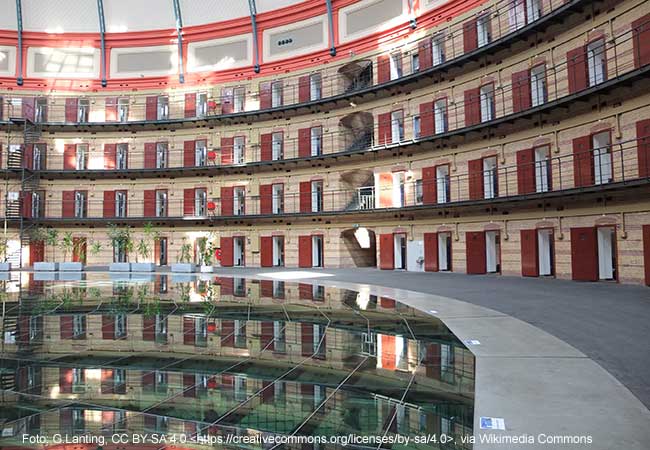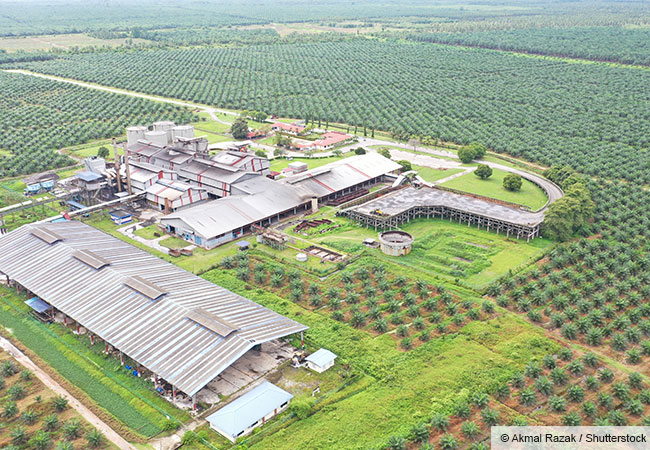Goethe University Frankfurt’s Institute of Art History has acquired a new research training group: „Organizing Architectures“ will produce works that examine planning, building and the built environment from an interdisciplinary perspective. The German Research Foundation (DFG) will provide “Research Training Group 3022” with initial funding for five years.

Examining architecture as a product of as well as an impetus for collective processes – this is the focus of the new Research Training Group at Goethe University Frankfurt’s Institute of Art History, which the German Research Foundation [Deutsche Forschungsgemeinschaft, DFG] recently approved. This dual role also finds expression in the title: „Organizing Architectures“ – which can refer both to the architectures being organized and to architectures themselves organizing something. The doctoral theses emanating from the research group do not consider architecture solely as a product of planning and construction, but also in terms of the multi-layered social processes associated with it.
„Organizing Architectures“ focuses on the tension between organized and organizing architectures. „In so doing, we are shifting the focus from the architectural concepts and dispositives that have dominated to date (the creative subject, the individual artistic work, the built structure marking the conclusion of planning) towards a consideration of their processual conditions. In line with recent interdisciplinary approaches, the research training group also examines architectures as their own triggers and catalysts,“ explains Prof. Carsten Ruhl, who teaches architectural history at Goethe University Frankfurt and serves as the group’s spokesperson.
The group views architectures as spaces in which dynamic negotiation processes take place, which are directly and inextricably linked to organizational forms like institutions, networks and discourses – fields of work that structure the research training group’s program. Its members include twelve academics from Goethe University Frankfurt, TU Darmstadt, the University of Kassel and the Max Planck Institute for Legal History and Legal Theory, whose academic backgrounds span architectural history, social sciences, cultural studies, law, history, architecture, and urban planning. Prof. Sybille Frank, professor for urban and spatial sociology at TU Darmstadt’s Institute of Sociology, serves as the research training group’s co-spokesperson. Starting November 1, 2024, the DFG will fund the group’s research for an initial five-year period with a grant of some €8.1 million.







